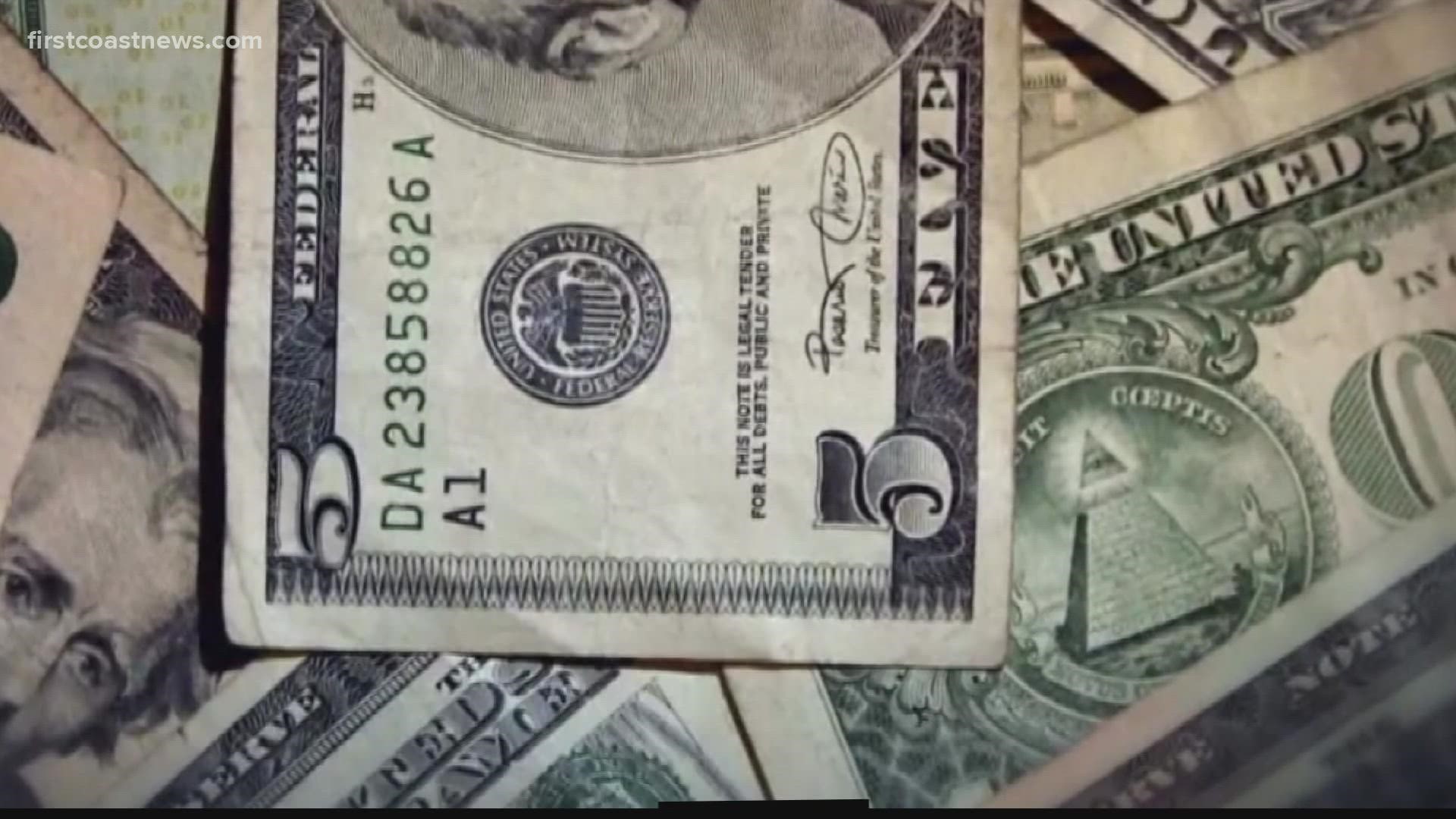JACKSONVILLE, Fla. — The price at the pump isn't the only cost rising. The inflation rate hit a nearly 40 year high in December.
"At the end of the day, it’s the COVID crisis and the COVID crisis has impacted inflation from several perspectives," Abdel Missa, professor of finance at Jacksonville University, said. "One is on the demand side, since we have seen the reopening of the economy, demand has gone through the roof, so demand goes up it pushes prices up," he said.
Missa said demand coupled with supply chain issues and staff shortages have caused prices to go up. Dr. Albert Loh, professor of economics at the University of North Florida, agreed and said the spike is unprecedented.
“We have a very strong rebound in economic activities coming off the peak of the pandemic, and that led to a massive surge in the overall demand on present services, which really exceeded our short term capacity in the production and supply chain, both nationally and globally," Loh said.
"On the other hand, we have shortages in labor materials and other production inputs, which made it difficult for the manufacturers to catch up in production. So, our economy is really facing a lot of pressures from both the demand and supply sides because of this big gap," Loh said.
According to the U.S. Bureau of Labor Statistics, the price for foods like meat, fish and eggs has risen about 12.5 percent compared to last year. At the pump, prices have increased over 40 percent.
Used cars are up more than 37 percent, and new cars nearly 12 percent. Rent, and just about everything else is also up.
“We’ve seen a dramatic increase in cost of living across the board," Missa said.
According to the Consumer Brands Association, grocery stores, including some locally, are seeing 15 percent of their items out of stock. Typically, grocery stores have five to 10 percent of their items out of stock, the Consumer Brands Association said.
"Customers are definitely hurting. Actually, a lot of the businesses are hurting too, you know, the higher wage rate, the higher price for their production inputs are definitely going to reduce their bottom line,” Loh said.
A spokesperson for Winn-Dixie said the supermarket chain is offering more discounts to help customers fight the high prices.
Both Loh and Missa urge consumers to only buy what you need until prices fall.
“For consumers, it's very important that, you know, if you're able to wait, you know, you don't really need to rush in to get things because you're seeing the prices going up. And that is only going to make things worse," Loh said.
“You really have to shop around, number one, ... when before maybe that was not necessary, now it’s really smart to go and find the lowest prices in what you need and manage the quantities and manage budgets so that we don’t get hurt with the massive increase in prices," Missa said.
Missa said he expects prices to fall by the end of this year.

